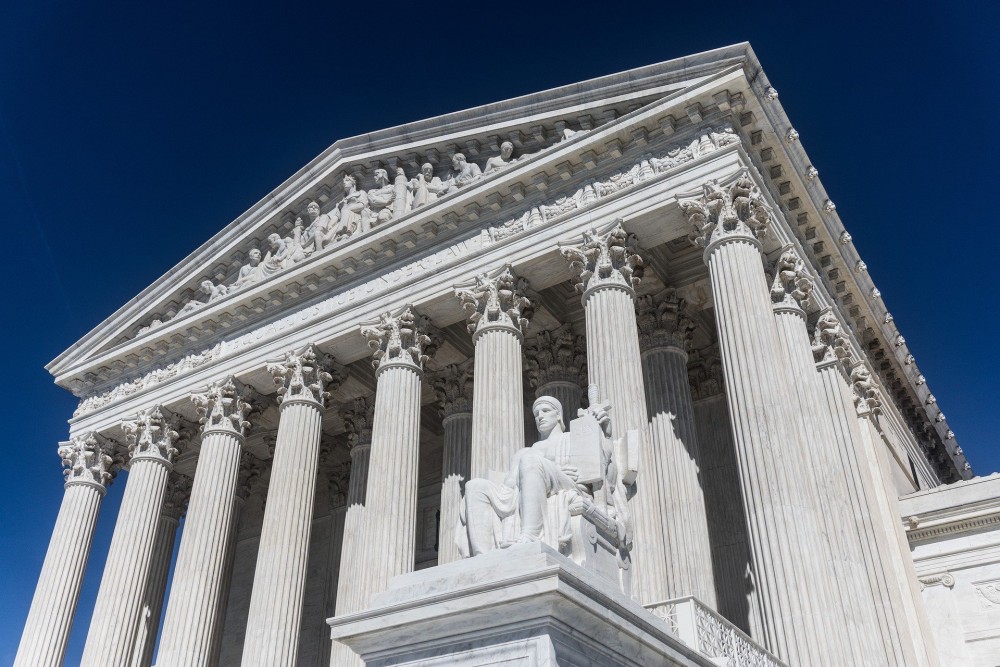
WASHINGTON — The U.S. Supreme Court on June 27 formally dismissed an appeal over Idaho’s strict abortion ban to allow emergency room doctors in the state to perform abortions.
But the court’s decision, released a day after the opinion was mistakenly posted briefly on the court’s website, leaves some key questions unanswered, opening a potential revisit of this issue by the nation’s high court in the future.
The 5-4 decision is similar to the draft that was inadvertently released and first reported by Bloomberg News on June 26. The ruling allows Idaho patients to obtain emergency abortions for now, but it failed to weigh in on if Idaho’s strict abortion law conflicts with federal law.
In a dissent, Justice Ketanji Brown Jackson said the decision was “not a victory for pregnant patients,” but instead “is a delay.”
She wrote that the justices had the opportunity “to bring clarity and certainty to this tragic situation, and we have squandered it.”
During oral arguments of this case in late April, the justices were divided about the question of if the federal law requiring hospitals to provide “necessary stabilizing treatment” in emergencies overrides an Idaho law that bans most abortions.
The federal law in question is the 1986 Emergency Medical Treatment and Labor Act meant to ensure that all patients have access to emergency services even if they are unable to pay at hospitals that participate in Medicare.
Idaho’s Defense for Life Act, a near-total abortion ban, with an exemption to prevent the mother’s death, went into effect after the Dobbs decision in 2022. It imposes criminal penalties and suspensions of medical licenses on doctors who perform abortions unless the mother’s life is in danger.
The state law had been put on hold by a district court judge after the federal government sued the state, but when the Supreme Court decided to take the case in January, it allowed the law to take effect while litigation continued.
In oral arguments, Idaho Solicitor General Joshua Turner told the justices that the federal government doesn’t get to decide when abortions are required standard of care in hospital emergency rooms. He also stressed that states must be allowed to regulate how they provide health care — including abortion — in the same way that they license medical personnel and require hospitals to comply with state laws.
Gabriella McIntyre, legal counsel at the Alliance Defending Freedom, representing Idaho, said the case is an attempt by the Biden administration to impose “a national mandate on abortion.”
U.S. Solicitor General Elizabeth Prelogar, representing the federal government, said the state’s abortion ban has major consequences for pregnant women and emergency room doctors.
“Today, doctors in Idaho and the women in Idaho are in an impossible position,” she said. “If a woman comes to an emergency room facing a grave threat to her health, but she isn’t yet facing death, doctors either have to delay treatment and allow her condition to materially deteriorate or they’re airlifting her out of the state so she can get the emergency care that she needs.”
The U.S. Conference of Catholic Bishops filed a friend of the court brief siding with Idaho and was joined by Catholic Health Care Leadership Alliance, Christ Medicus Foundation, National Catholic Bioethics Center, the Catholic Bar Association, and the Catholic Medical Association.
They urged the justices to reject “efforts to fabricate a federal abortion mandate that will override state law and, in so doing, violate the rights of religious health care providers who desire to treat and protect the lives and health of both the mother and her unborn baby in compliance with the text and purpose of EMTALA.”
They also said that by using the federal law to require individuals and entities to provide abortions, the Biden administration “has exceeded its statutory authority and acted contrary to the express will of Congress under federal law,” noting that “Congress has expressly prohibited the federal government from requiring health care entities to perform abortions.”
